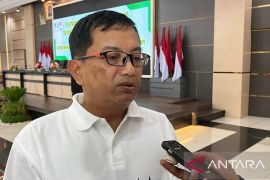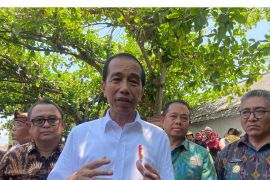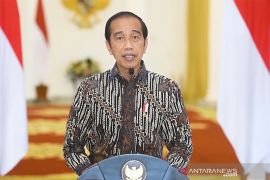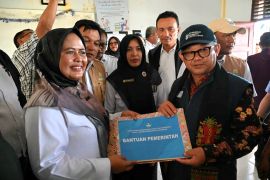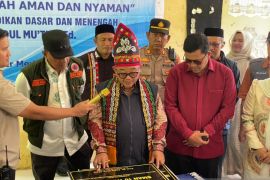The three steps are developing renewable energy, going in for industrialization and corporate governance, the agencys director of state finance and monetary analysis Sidqy Lego Pangesthi said here on Friday.
By developing renewable energy, the economy will no longer be burdened by oil imports, he said.
"So far, we have ignored the option of alternative energy. In fact, we are rich in gas and coal. In the first and second quarters, our oil and gas imports reached US$12.3 billion," he said.
Just in 2014, Indonesia imported US$40 billion worth of oil and gas, he noted.
Sidqy said during the past 10 years, the country missed the chance to develop renewable energy.
Instead of allocating budget fund for oil subsidy, which often missed the target, it should be largely used to develop infrastructure for renewable energy, he said.
"For instance, to build a gas station, we need Rp30 billion," he said.
In the next five years, 500 gas stations can be built across Indonesia if funds to the tune of Rp400 trillion were to be allocated for the development of gas infrastructure, he said.
"In Thailand, almost 100 percent of cars and motorcycles use gas which is cheaper and environment-friendly," he said.
The second step is industrialization, he said.
Indonesia was fascinated by the high prices of oil between 2008 and 2011 and , as a result, forgot to develop industrialization or the manufacturing sector, he said.
As a result, the industrial sector has been growing by just 5 percent and contributes about 20 percent to the national gross domestic product, he said.
"Before the reform era, we saw an industrial growth of up to 10 percent and the contribution of the industrial sector to the GDP had reached 32 percent," he said.
"Industries can create a lot of jobs and help reduce the rate of poverty," he said.
The third step is corporate governance, he said, adding that poor corporate governance is one of reasons why the country finds it difficult to stop imports.
"The corporate governance must be improved comprehensively," he said.(*)
Editor: Heru Purwanto
Copyright © ANTARA 2015
